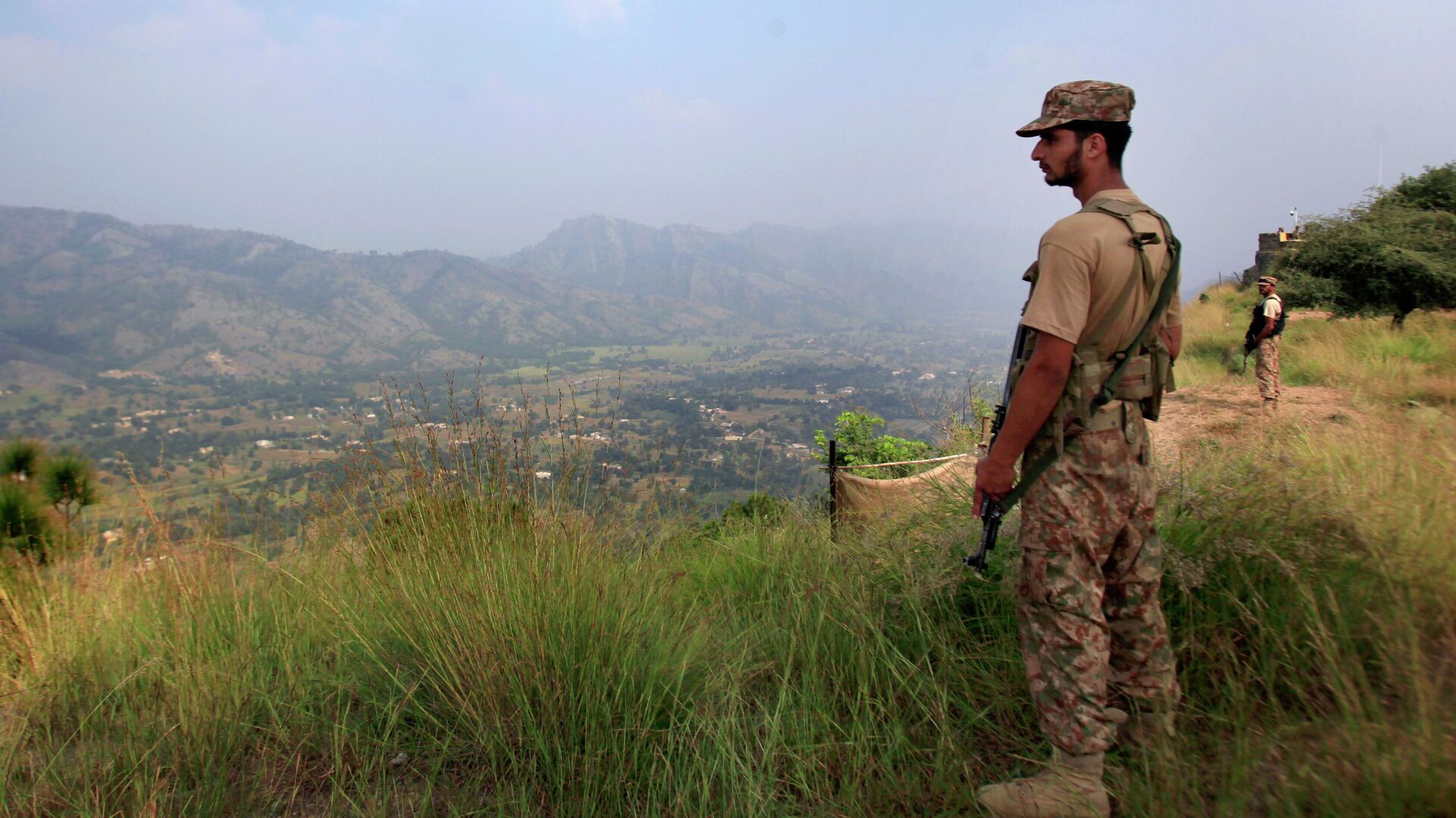https://sputnikglobe.com/20220821/shehbaz-sharif-seeks-permanent-peace-with-india-wants-to-resolve-kashmir-issue-through-talks-1099811545.html
Shehbaz Sharif Seeks 'Permanent Peace' With India, Wants to Resolve Kashmir Issue Through Talks
Shehbaz Sharif Seeks 'Permanent Peace' With India, Wants to Resolve Kashmir Issue Through Talks
Sputnik International
Arch-rivals India and Pakistan have fought three wars - in 1965, 1971, and the Kargil conflict in 1999 - over the disputed region of Kashmir. Both nations... 21.08.2022, Sputnik International
2022-08-21T07:10+0000
2022-08-21T07:10+0000
2022-12-08T18:02+0000
india
pakistan
shehbaz sharif
prime minister
prime minister
narendra modi
narendra modi
kashmir
disputed territory
https://cdn1.img.sputnikglobe.com/img/07e6/08/08/1099384025_0:82:3353:1968_1920x0_80_0_0_43aaa98a0639c9b5b0a13c741bda731c.jpg
Pakistan's prime minister Shehbaz Sharif has declared that his country wants everlasting peace with its south Asian neighbor India, and a military confrontation is not the way the two nations should resolve the decades-long Kashmir issue.According to the English-language, Pakistani, daily newspaper, The News International, Sharif said when speaking with students at Harvard University that permanent peace between the rivals depended heavily on solving the Kashmir problem using UN resolutions.Ties between India and Pakistan have remained strained over Kashmir and have worsened in the past three years after Indian Prime Minister Narendra Modi's government revoked Jammu and Kashmir's (J&K) special status in 2019.In a landmark decision on 5 August 2019, Modi's government scrapped Articles 370 and 35A of the Indian Constitution. Article 370 afforded a semi-autonomous status to Jammu and Kashmir.After India's decision to strip Jammu and Kashmir of its autonomy, tensions between the two neighbors escalated, with Pakistan downgrading diplomatic relations and expelling the Indian ambassador.In a tit-for-tat move, India expelled the Pakistani envoy before suspending trade between the two countries.India further reiterated that Jammu and Kashmir "was, is and shall forever" be a part of its territory and Pakistan has no place to speaking about India's internal matters.India continues to emphasize that it wishes to see a resumption of normality in its relations with Pakistan but only in an environment that would be free of terror, a reference to cross-border militancy which has often ravaged Indian-administered Kashmir.
pakistan
kashmir
Sputnik International
feedback@sputniknews.com
+74956456601
MIA „Rossiya Segodnya“
2022
Pawan Atri
https://cdn1.img.sputnikglobe.com/img/07e5/05/12/1082926219_0:0:358:358_100x100_80_0_0_aca1d9bdccc7af990e49b4511ee80344.png
Pawan Atri
https://cdn1.img.sputnikglobe.com/img/07e5/05/12/1082926219_0:0:358:358_100x100_80_0_0_aca1d9bdccc7af990e49b4511ee80344.png
News
en_EN
Sputnik International
feedback@sputniknews.com
+74956456601
MIA „Rossiya Segodnya“
Sputnik International
feedback@sputniknews.com
+74956456601
MIA „Rossiya Segodnya“
Pawan Atri
https://cdn1.img.sputnikglobe.com/img/07e5/05/12/1082926219_0:0:358:358_100x100_80_0_0_aca1d9bdccc7af990e49b4511ee80344.png
india, pakistan, shehbaz sharif, prime minister, prime minister, narendra modi, narendra modi, kashmir, disputed territory
india, pakistan, shehbaz sharif, prime minister, prime minister, narendra modi, narendra modi, kashmir, disputed territory
Shehbaz Sharif Seeks 'Permanent Peace' With India, Wants to Resolve Kashmir Issue Through Talks
07:10 GMT 21.08.2022 (Updated: 18:02 GMT 08.12.2022) Arch-rivals India and Pakistan have fought three wars - in 1965, 1971, and the Kargil conflict in 1999 - over the disputed region of Kashmir. Both nations claim the territory in its entirety but have governed it together since gaining independence from the British in 1947.
Pakistan's prime minister
Shehbaz Sharif has declared that his country wants everlasting peace with its south Asian neighbor India, and a military confrontation is not the way the two nations should resolve the decades-long Kashmir issue.
According to the English-language, Pakistani, daily newspaper, The News International, Sharif said when speaking with students at Harvard University that permanent peace between the rivals depended heavily on solving the
Kashmir problem using UN resolutions.
"Pakistan resolves to maintain peace in the region, and sustainable peace in the region is linked to the resolution of the Kashmir issue according to UN resolutions," Sharif said. "We want permanent peace with India through talks since war is not an option for either of the countries."
Ties between India and Pakistan have remained strained over Kashmir and have worsened in the past three years after Indian Prime Minister
Narendra Modi's government revoked Jammu and Kashmir's (J&K) special status in 2019.
In a landmark decision on 5 August 2019, Modi's government scrapped Articles 370 and 35A of the Indian Constitution. Article 370 afforded a semi-autonomous status to Jammu and Kashmir.
After India's decision to strip Jammu and Kashmir of its autonomy, tensions between the two neighbors escalated, with Pakistan downgrading diplomatic relations and expelling the Indian ambassador.
In a tit-for-tat move, India expelled the Pakistani envoy before suspending trade between the two countries.
India further reiterated that Jammu and Kashmir "was, is and shall forever" be a part of its territory and Pakistan has no place to speaking about India's internal matters.
India continues to emphasize that it wishes to see a resumption of normality in its relations with Pakistan but only in an environment that would be free of terror, a reference to cross-border militancy which has often ravaged Indian-administered Kashmir.


